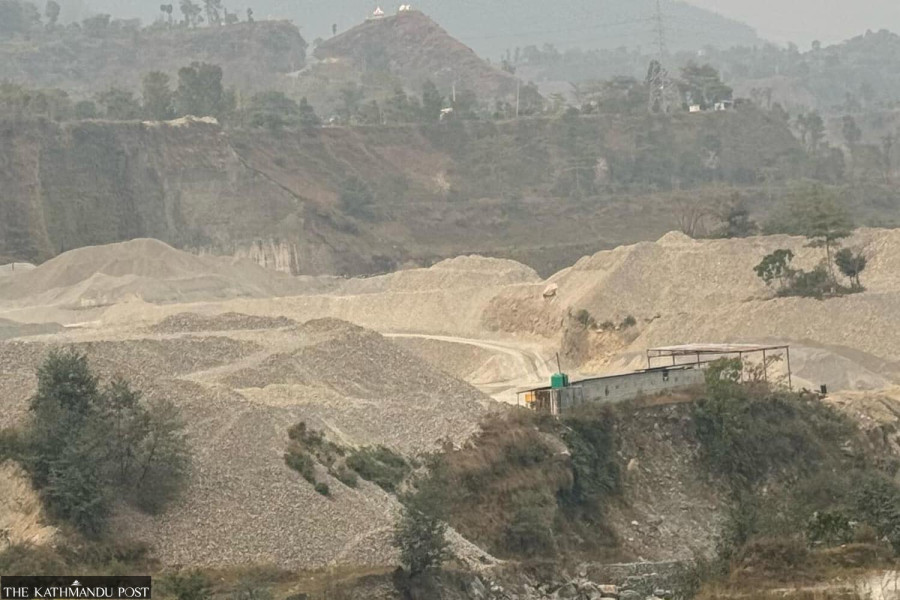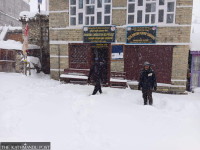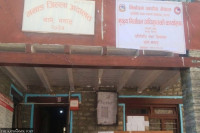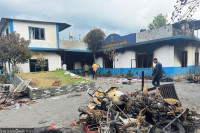Gandaki Province
Kaski local unit struggles to collect Rs500 million dues from crusher plants
Crusher operators say they can’t pay because extraction rates were raised unfairly.
Deepak Pariyar
Machhapuchchhre Rural Municipality in Kaski allocated Rs300,000 through a consumers’ committee to construct a foot trail from Kurli to Tilchi in the current fiscal year. The committee paid a total of Rs23,100 in revenue to the rural municipality. Shiva Bhandari, a local resident of Kalimati in ward 8 of the rural municipality, vented his ire on social media, stating that the local unit fails to collect millions from crusher plants, while ordinary people have to pay such a hefty amount for the development project worth just Rs300,000.
“Is the law only for orindary people? How long will the powerful get off scot-free while commoners comply with the legal provisions?” he wrote on social media. He expressed his dissatisfaction at the local unit’s failure to collect a huge amount of revenue from crusher plants despite repeated urging from the Commission for the Investigation of Abuse of Authority.
Machhapuchchhre Rural Municipality has yet to collect revenues totalling approximately Rs491.4 million from three crusher plants and one quarry operating within its jurisdiction. Baraha Crusher Plant at Bhurjungkhola in ward 2, Gandaki Aggregate at Cholkholsa and Seti Gandaki Crusher Plant in ward 4 are in operation in the local body. Similarly, Pokhara-based JK Crusher Plant has been extracting stones and pebbles at Kharibot in ward 3.
These crusher plants and the quarry are in operation on private land after receiving permission from Machhapuchchhre Rural Municipality. Some are alleged to be extracting more materials than allowed under the Initial Environmental Examination (IEE), while others have started extracting stones and gravels without any IEE approval.
Faced with the unpaid revenue, Machhapuchchhre Rural Municipality asked the Institute of Engineering, Paschimanchal Campus, in the last fiscal year 2023-24 to assess the quantities of materials extracted by the crusher plants. A team of four experts carried out a study and submitted its report. The report says that three crusher plants and a quarry owe Rs491,431,297 in revenue for the extraction of stones, gravel, sand and soil. The amount was calculated based on the rate of revenue set by the Gandaki provincial government.

On June 23, last year, a meeting of the revenue advisory committee, led by Sita Adhikari, vice-chairperson of Machhapuchchhre Rural Municipality, decided to collect the revenue from the crusher plants and quarry as per the expert team’s report.
According to the report, Baraha Crusher Plant owes Rs9.6 million for extracting 77,776 cubic meters of soil and Rs172.3 million for extracting 542,307 cubic metres of stones, gravel and sand. Similarly, Gandaki Aggregate owes about Rs4.9 million for extracting 39,906 cubic meters of soil and Rs113.6 million for extracting 357,448 cubic metres of stones, gravel and sand.
Seti Gandaki Crusher Factory owes Rs5.8 millions in revenue for extracting 47,324 cubic meters of soil and Rs 89.8 million for extracting 282,775 cubic metres of stones, gravel and sand. Likewise, JK Crusher has not paid around Rs43.6 million for extracting soil, stones, gravel and sand.
All the amounts that the crusher plants owe include Value Added Tax (VAT). As per the existing legal provisions, the VAT amounts should be paid to the federal government, with 60 percent of the revenue belonging to the local government and 40 percent going to the provincial government.
After the revenue was not collected, a complaint was filed at the National Vigilance Center and the CIAA. The petitioner claimed the revenue could not be collected due to collusion between the people’s representatives in the rural municipality and the owners of the crusher plants. The rural municipality says it has not collected any revenue from the crusher plants so far.
On August 18, 2024, the National Vigilance Centre wrote to Machhapuchchhre Rural Municipality instructing it to furnish clarification along with relevant documents. The centre inquired about the number of crusher plants, their legal status (registered or not), and whether they pay taxes regularly, among other things. Similarly, the Pokhara office of the CIAA, on August 25, instructed the local unit to provide necessary documents and explain why the crusher plants had not paid the revenue.

Machhapuchchhre Rural Municipality claims that it wrote to the crusher factories to pay revenue as per the report of the expert team that involved engineers. “The crusher operators refused to pay revenue stating that the report was a guess work which was prepared baselessly,” said Min Bahadur Gurung. According to him, the executive committee meeting held on February 16 decided to write to the Ministry of Economic Affairs of Gandaki Province, urging it to facilitate the resolution of the issue.
Bhoj Raj Paudel, the owner of Gandaki Aggregate, said that when the crusher started its operations, the revenue was set at Rs20 per cubic metre of sand, but it was increased to Rs80 in the fiscal year of 2020-21. “The revenue rate is now Rs317 per cubic metre. We cannot pay the revenue at this rate,” said Paudel. He alleged that the excavation quantities were determined by the team from the engineering campus based on estimates without consulting the crusher firms.
The crusher plants and quarry were established in the fiscal year of 2019-20. According to Cholakanta Regmi, an engineer at the Infrastructure Development and Environment Management branch of Machhapuchchhre Rural Municipality, the crusher plants are operating as per the Standard on Extraction, Sale and Management of Stone, Gravel and Sand Mining 2077 BS. He said that the crusher plants have permission for mining only, but they had been operating as crusher factories.
Gopi Krishna Aryal, the chief administrative officer of the rural municipality, said that all the crusher plants initially paid revenue but stopped doing so in the last fiscal year 2023-24. He shared his experience that it is difficult to regulate the crusher plants due to lack of clear legal provisions.




 14.12°C Kathmandu
14.12°C Kathmandu.jpg)











